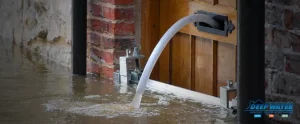As troublesome as it is, flooding is unavoidable. It is a fatal natural disaster that can leave a whole city in havoc, especially with all the dips and rises in the earth’s geography.
However, there are also types of floods that can be anything but natural. It can stem from broken appliances, unmaintained sewage, and many more.
Since flooding can affect any area, awareness of the types of floods and the likelihood of potential damage spurs preparedness and ensures your family’s safety.
Natural Floods
The types of flooding caused by extreme weather such as rainfall, thunderstorms, storm surges, or melting ice are natural floods. In the United States, 90% of the officially declared natural disasters are flood-related.
Most often, water that accumulates from the damage of a natural flood is unsanitary and contains various pathogens. If you need to deal with one of these types of floods, it is best to call for help from professional mitigation services instead of drying the water on your own.
Man-Made Floods
While natural floods may occur, humans often contribute to the likelihood of floods by our development of city landscapes and even our wasteful lifestyle. There are many human causes of floods, and some of these are:
- breaking or failure of infrastructure
- building infrastructure in flood-prone areas
- cutting off trees
- building bridges that may constrict river flows
Many developed and low-lying areas have an impervious surface that can accumulate rainfall when not adequately managed. Before installing your plumbing or building your sewage system, ask experts to check your area for possible dangers of flooding.
Types of Floods
Descriptions of the different types of floods depend on their speed, geography, and source. Understanding the types of floods and their potential risks raises awareness on prevention and how to handle the aftermath.
Flash
Many factors can cause one of these types of floods; in most cases, flash floods can occur within six hours of the start of heavy rainfall. When a dike breaks during a thunderstorm, the contained water can overflow and cause flooding.
Flash floods are characterized by their rapid rise and movement. Their strong water can move even large objects along its way. Since flash floods can occur with no warning, people should be updated on the weather changes in their area and be prepared to evacuate when needed.
Coastal
Areas experiencing strong winds and heavy storms are prone to flooding when high tides and waves push towards their coastlines. The water will accumulate over the land and cause coastal flooding.
This type of flood can be categorized into three levels, namely:
- Minor – a level of coastal flooding with a low likelihood of property damage.
- Moderate – a level of coastal flooding with an increased likelihood of property damage and can be life-threatening.
- Major – a level of coastal flooding with a significant likelihood of potential damage and can be seriously life-threatening.
Coastal areas are prone to flooding because of their low elevation and few defenses. People living close to the ocean must be aware of the risks to be prepared for the warning of possible floods.
River
A possible river flood threat happens when the water overflows from the riverbanks. The damage of this type of flood can vary significantly in the amount of water from natural river channels. A river with the largest water can flood through the system once every two years.
Like all natural types of flooding, extreme rainfall or melting snow cause river floods. It can be easily predicted, but its potential damage to properties is unexpected, especially with a dam or dike breakage.
Pluvial
Pluvial flooding often occurs in agricultural areas due to farming activities lacking countermeasures. Significant rainfall can cause the formation of puddles on footpaths that can even form ponds when not completely absorbed by the soil.
When this type of flood overflows to nearby streets and properties, this can also lead to significant structural damage and long-term risk of mold.
Urban
There are cases when a drainage system fails to prevent water-clogging after heavy rainfall leading to urban floods. Most often, rainfalls overwhelming the sewage system cause unpleasant floods to the street, making driving dangerous. This type of flood can also cause sewage to leak through plumbing outlets such as pipes, drains, sinks, showers, and toilets.
Urban floods are the most hazardous types of floods. Their contaminated water can cause infection, fever, vomiting, diarrhea, and other diseases. Hence, experts should perform sewage cleanup in this situation.
When you call professionals to address the damage of floods on your property, the first step is to assess and determine the best action for cleanup and mitigation.
The flood remediation process often involves:
- Examination of potential safety hazards such as electrical damage
- Detection of hidden water damage through moisture sensors
- Extraction of accumulated water using pumps and industrial vacuum
- Drying out of the water from walls, ceilings, and building cavities
- Disinfection and deodorization
- Dehumidification to remove leftover moisture that can cause mold growth
Call Your Trusted Mitigation Expert
The potential dangers of flooding can range from structural damage, contamination, electric issues, traffic, and economic damage. No matter the types of floods, the damage can be severe. But recovering from it should not be done alone.
Call Deep Water Emergency Services and Mitigation! We offer fire, mold, and helping our clients restore their damaged property and transform it back into a comfortable living space. We have strategically placed locations throughout the country offering 24-hour services.






